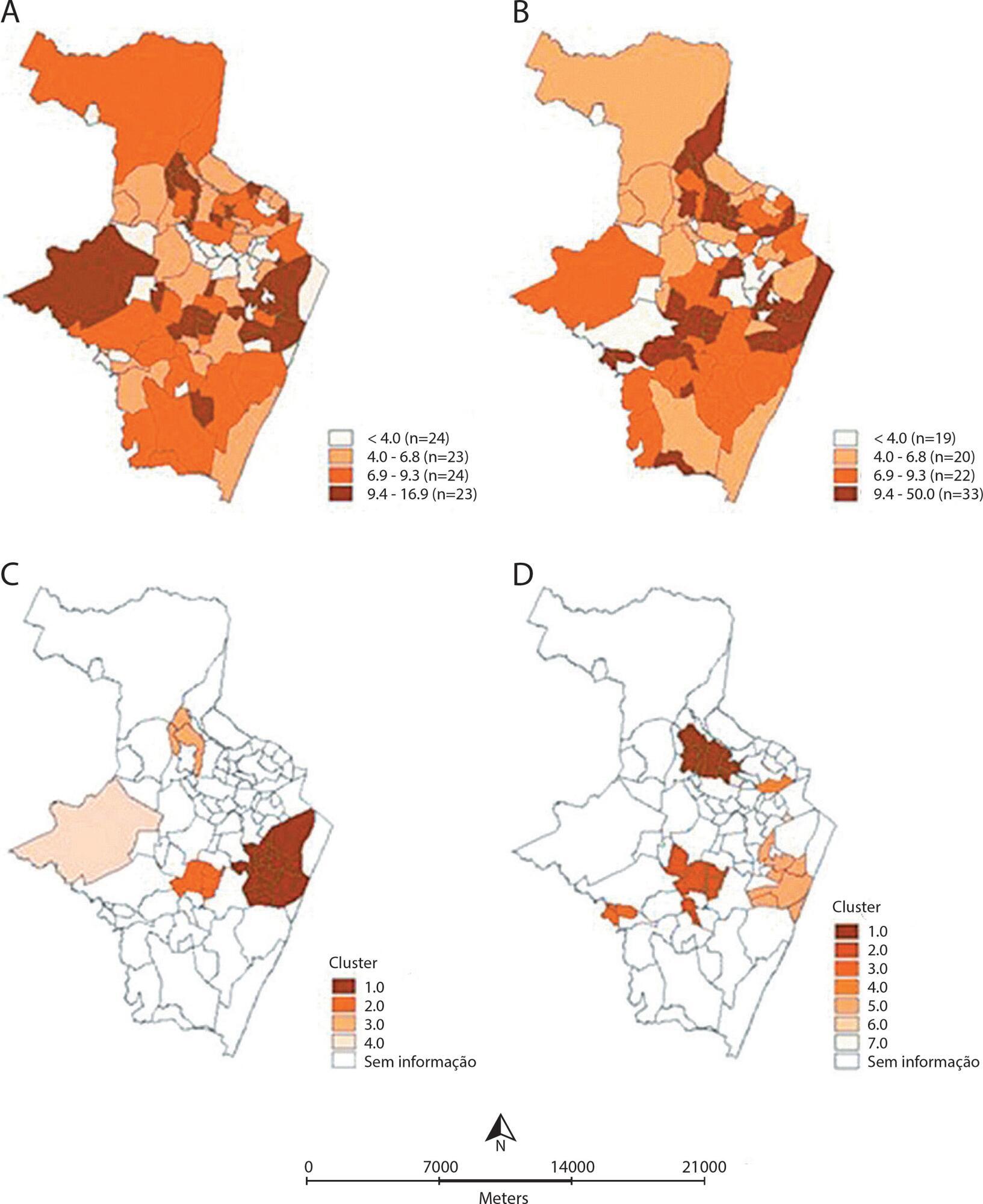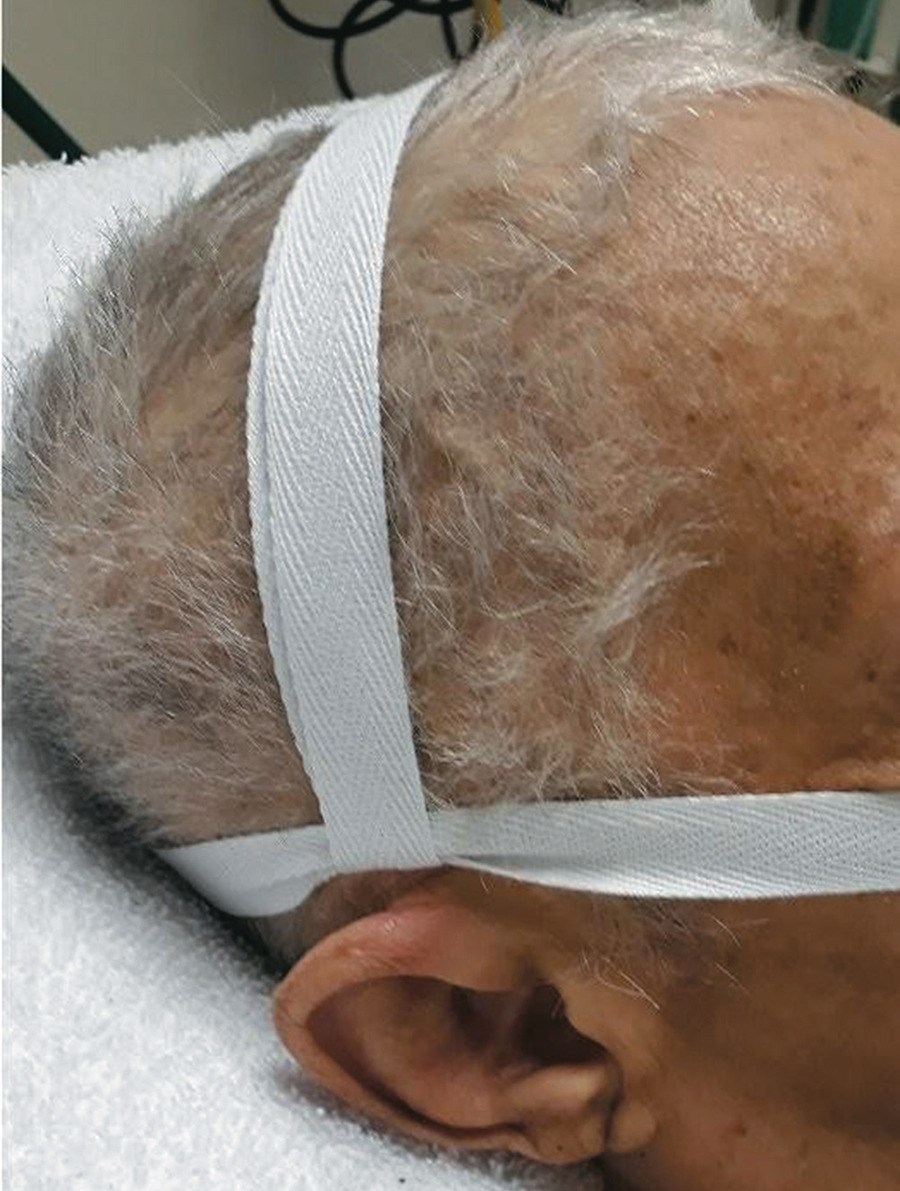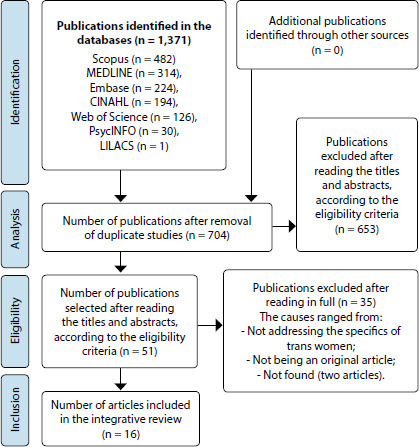-
REFLECTION01-01-2017
Transcendence, historicity and temporality of being elderly: nursing reflection-using Heidegger
Revista Brasileira de Enfermagem. 2017;70(4):891-895
Abstract
REFLECTIONTranscendence, historicity and temporality of being elderly: nursing reflection-using Heidegger
Revista Brasileira de Enfermagem. 2017;70(4):891-895
DOI 10.1590/0034-7167-2016-0275
Views0See moreABSTRACT
The objective is to reflect on historicity and temporality as paths for the transcendence of being elderly, based on the phenomenological concepts of Martin Heiddeger. A review of the concepts of transcendence, historicity and temporality was carried out in the work of Martín Heidegger, integrating them in the perspective of nursing for the elderly. The transcendence of the elderly adult is feasible by accessing the temporality of self in the path of its historicity to arrive at the understanding of itself that he has achieved: transcending, which is but a process of the Being itself. Being is time in itself existing in the world, existence given by the encounter of the past (to have been), present and future (becoming), the same encounter that determines the historicity of the Being. The encounter has been consummated and the Being is transcendence, with the understanding of the Being itself as a supreme point.
-
01-01-2017
Trascendencia, historicidad y temporalidad del ser adulto mayor: reflexión enfermera en Heidegger
Revista Brasileira de Enfermagem. 2017;70(4):891-895
Abstract
Trascendencia, historicidad y temporalidad del ser adulto mayor: reflexión enfermera en Heidegger
Revista Brasileira de Enfermagem. 2017;70(4):891-895
DOI 10.1590/0034-7167-2016-0275
Views0See moreRESUMEN
El objetivo es reflexionar en la historicidad y temporalidad como caminos para la trascendencia del ser adulto mayor, basado en los conceptos fenomenológicos de Martín Heiddeger. Se llevó a cabo una revisión de los conceptos de trascendencia, historicidad y temporalidad en la obra de Martín Heidegger, realizando su integración en la perspectiva de enfermería al adulto mayor. La trascendencia del ser adulto mayor es factible accediendo a la temporalidad del mismo en el camino de su historicidad para llegar a la comprensión de sí a la que ha llegado: trascendiendo, que no es sino un proceso del mismo ser. El ser es el tiempo en sí mismo existiendo en el mundo, existencia dada por el encuentro del pasado (haber sido), presente y futuro (devenir), mismo encuentro que determina la historicidad del ser. El encuentro se ha consumado y el ser es trascendencia, como punto supremo la comprensión del ser mismo.
-
EXPERIENCE REPORT01-01-2017
Scenario approximation in a phenomenological study in Mexico: experience report
Revista Brasileira de Enfermagem. 2017;70(4):885-890
Abstract
EXPERIENCE REPORTScenario approximation in a phenomenological study in Mexico: experience report
Revista Brasileira de Enfermagem. 2017;70(4):885-890
DOI 10.1590/0034-7167-2016-0601
Views0See moreABSTRACT
Objective:
To report our experience using scenario approximation in a phenomenological study of nursing in Mexico.
Method:
Experience report on scenario approximation to coexist with elderly in order to select the participants of a phenomenological study.
Results:
During a four-month period in 2016, visits were carried out two groups of elderly individuals where several activities were carried out. Coexistence with the elderly throughout accompaniment in the groups’ activities together with joint dialogue allowed selection of those who corresponded to the characteristics of the study objective.
Conclusion:
Scenario approximation is necessary in phenomenological studies, not only for creating empathy among the participants but also for the researchers to immerse themselves in the phenomenon under study, as shown by the first approaches of the researcher.
-
01-01-2017
Acercamiento al escenario de estudio fenomenológico en México: relato de experiencia
Revista Brasileira de Enfermagem. 2017;70(4):885-890
Abstract
Acercamiento al escenario de estudio fenomenológico en México: relato de experiencia
Revista Brasileira de Enfermagem. 2017;70(4):885-890
DOI 10.1590/0034-7167-2016-0601
Views0See moreRESUMEN
Objetivo:
Relatar la experiencia del acercamiento al escenario de un estudio fenomenológico en enfermería en México.
Método:
Relato de experiencia sobre el acercamiento al escenario de estudio para convivir con adultos mayores con la finalidad de seleccionar a los participantes de un estudio fenomenológico.
Resultados:
Se llevaron a cabo visitas durante el año 2016, en un periodo de cuatro meses a dos grupos de adultos mayores en donde se realizaron diversas actividades. La convivencia con los adultos mayores a través del acompañamiento en las actividades que realizaban en los grupos y el diálogo conjunto permitió seleccionar a aquellos que respondían a las características del objeto de estudio.
Conclusión:
Es necesaria la aproximación al escenario de estudios fenomenológicos, no sólo con la finalidad de ganar empatía de los participantes sino para sumergirse en el fenómeno de estudio, mismo que se va mostrando desde los primeros acercamientos del investigador.
-
REVIEW01-01-2017
Knowledge produced on the health of low-income older women: an integrative review
Revista Brasileira de Enfermagem. 2017;70(4):875-884
Abstract
REVIEWKnowledge produced on the health of low-income older women: an integrative review
Revista Brasileira de Enfermagem. 2017;70(4):875-884
DOI 10.1590/0034-7167-2017-0024
Views0See moreABSTRACT
Objective:
to identify the knowledge produced on the health of low-income older women.
Method:
an integrative review was conducted in February 2016 on the SCOPUS, CINAHL, MEDLINE, LILACS, EMBASE, WEB OF SCIENCE databases, and in the SciELO journals directory. After the application of inclusion and exclusion criteria, 24 articles were selected.
Results:
the knowledge produced comprises two main themes: “health in face of economic adversities” and “reciprocity in social support between low-income older women and their social network”.
Final considerations:
health professionals, especially nurses, should be attentive to aspects related to social determinants and the health of low-income older women, highlighting the fact that they are not always the recipients of care.

-
REVIEW01-01-2017
Functional health literacy and adherence to the medication in older adults: integrative review
Revista Brasileira de Enfermagem. 2017;70(4):868-874
Abstract
REVIEWFunctional health literacy and adherence to the medication in older adults: integrative review
Revista Brasileira de Enfermagem. 2017;70(4):868-874
DOI 10.1590/0034-7167-2016-0625
Views1See moreABSTRACT
Objective:
to characterize the national and international scientific production on the relationship of Functional Health Literacy and the adherence to the medication in older adults.
Method:
integrative review of literature, searching the following online databases: Scientific Electronic Library Online (SCIELO); Latin American and Caribbean Health Sciences Literature (LILACS); Medical Literature Analysis and Retrieval System Online (MEDLINE); and Cumulative Index to Nursing & Allied Health Literature (CINAHL), in June 2016. We selected 7 articles that obeyed the inclusion criteria.
Results:
all articles are from the USA. The inappropriate Functional Health Literacy affects the non-adherence to medication; however, there are several strategies and interventions that can be practiced to change this relationship.
Conclusion:
nursing needs to explorefurther this theme, since it can exert a differentiated care for adherence to medication in older adults, considering the literacy.
-
RESEARCH01-01-2017
Evaluation of the safety of hospitalized older adults as for the risk of falls
Revista Brasileira de Enfermagem. 2017;70(4):860-867
Abstract
RESEARCHEvaluation of the safety of hospitalized older adults as for the risk of falls
Revista Brasileira de Enfermagem. 2017;70(4):860-867
DOI 10.1590/0034-7167-2017-0098
Views0See moreABSTRACT
Objective:
To evaluate the safety of hospitalized older adults as for the risk of falls according to the parameters of the Morse Fall Scale.
Method:
Epidemiological, cross-sectional, prospective and descriptive study with n=75.
Results:
Average age of 71.3 years (SD±8.2); 58.7% male; 44% with low educational level; 38.7% hospitalized for cardiovascular diseases; average hospitalization of 10 days (SD±9.38); 78.7% with comorbidities; 61.3% with the calf circumference ≥ 31 cm; 62.7% were former smokers for more than 10 years; 65% did not drink alcohol; 100% did not have identification bracelet; 22.7% had similar names in the infirmary; 48% took up to five medicines; and 93.3% received some invasive procedure, especially the vessel puncture (65.3%). There was a high risk of falls in 52% of older adults.
Conclusion:
The results pointed to imminent risk of breach of patient safety, emphasizing the need for implementation of protocols and predictive scales such as the Morse scale.

-
RESEARCH01-01-2017
Quality of life of elderly people with chronic kidney disease in conservative treatment
Revista Brasileira de Enfermagem. 2017;70(4):851-859
Abstract
RESEARCHQuality of life of elderly people with chronic kidney disease in conservative treatment
Revista Brasileira de Enfermagem. 2017;70(4):851-859
DOI 10.1590/0034-7167-2017-0103
Views0See moreABSTRACT
Objective:
To describe the quality of life (QOL) of elderly people with Chronic Kidney Disease (CKD) in conservative treatment, correlating it with sociodemographic and health-related aspects.
Method:
This is a quantitative, cross-sectional, and descriptive study that used: a previously validated instrument for data collection; the WHOQOL-BREF and WHOQOL-OLD QOL scales; and the Mini-Mental State Examination.
Results:
Thirty-five elderly people (54.30% females), with mean age of 68.26 years, took part in the study. They reported, on average, 3.70 comorbidities and 5.60 complications related to CKD. Regarding QOL, the “psychological” domain (54.40±16.29) and the “death and dying” facet (37.32±23.79) were considered the most damaged ones; the most strengthened were “social relationships” (70.36±18.32) and “intimacy” (66.61±16.80). A positive correlation was verified between comorbidities and complications (p = 0.015), and an inverse correlation between the number of complications and QOL (p = 0.004).
Conclusion:
These results, if considered during the care planning, may help improving the quality of the care provided for elderly people with CKD.
-
ORIGINAL ARTICLE07-15-2020
Spatial analysis of inequalities in fetal and infant mortality due to avoidable causes
Revista Brasileira de Enfermagem. 2020;73:e20190088
Abstract
ORIGINAL ARTICLESpatial analysis of inequalities in fetal and infant mortality due to avoidable causes
Revista Brasileira de Enfermagem. 2020;73:e20190088
DOI 10.1590/0034-7167-2019-0088
Views0See moreABSTRACT
Objectives:
to analyze social inequalities in spatial distribution of fetal and infant mortality by avoidable causes and identify the areas of greater risk of occurrence.
Methods:
avoidable deaths of fetal and infant residents of Recife/Brazil were studied. The rates of avoidable fetal and infant mortality were calculated for two five-year periods, 2006-2010 and 2011-2015. The scan statistics was used for spatial analysis and related to the social deprivation index.
Results:
out of the total 2,210 fetal deaths, 80% were preventable. Avoidable fetal mortality rates increased by 8.1% in the five-year periods. Of the 2,846 infant deaths, 74% were avoidable, and the infant mortality rate reduced by 0.13%.
Conclusions:
in the spatial analysis, were identified clusters with higher risk for deaths. The social deprivation index showed sensibility with areas of worse living conditions.

-
ORIGINAL ARTICLE07-08-2020
The association between knowledge about HIV and risk factors in young Amazon people
Revista Brasileira de Enfermagem. 2020;73(5):e20190453
Abstract
ORIGINAL ARTICLEThe association between knowledge about HIV and risk factors in young Amazon people
Revista Brasileira de Enfermagem. 2020;73(5):e20190453
DOI 10.1590/0034-7167-2019-0453
Views0See moreABSTRACT
Objectives:
analyze the association between the level of HIV knowledge among young people from Amazonas region, their sociodemographic profile and infection risk factors.
Methods:
cross-sectional analytical study, which used a structured questionnaire containing questions about sociodemographic, behavioral aspects and HIV knowledge. Data were grouped by sex and underwent ordinal and binary logistic regression analysis.
Results:
the students had an HIV knowledge deficit, associated with a low educational level of their parents and low family income. The most frequent risk factors were lack of knowledge on the part of female students regarding proper male condom use, their infrequent use in sexual relations and failure to do HIV testing. There was an association between level of knowledge and use of dating apps by female students.
Conclusions:
there was no association between level of knowledge and the preponderant risk factors, but the students’ knowledge deficit rendered them more vulnerable to infection.
-
ORIGINAL ARTICLE05-03-2021
Medical device-related pressure injury prevention in critically ill patients: nursing care
Revista Brasileira de Enfermagem. 2021;74(2):e20200062
Abstract
ORIGINAL ARTICLEMedical device-related pressure injury prevention in critically ill patients: nursing care
Revista Brasileira de Enfermagem. 2021;74(2):e20200062
DOI 10.1590/0034-7167-2020-0062
Views0See moreABSTRACT
Objectives:
to know the care implemented by the nursing team to prevent medical device-related pressure injuries in critically ill patients.
Methods:
this is a qualitative research conducted with 15 nursing professionals from Intensive Care Unit. Sampling was carried out by theoretical saturation. For data analysis, the Discourse of the Collective Subject technique was used.
Results:
six speeches emerged, whose central ideas were interventions for medical device-related pressure injury prevention: care in fixation; frequent repositioning; protection and padding of body areas in contact; preferences for flexible materials, when available; attention of professionals so that they do not comer under patients; early assessment and removal, when clinically possible.
Final Considerations:
nursing care was directed mainly to respiratory devices, catheters in general and monitoring equipment, indicating that professionals have the knowledge to provide safe assistance consistent with the literature.

-
ORIGINAL ARTICLE08-19-2019
Factors related to impaired comfort in chronic kidney disease patients on hemodialysis
Revista Brasileira de Enfermagem. 2019;72(4):889-895
Abstract
ORIGINAL ARTICLEFactors related to impaired comfort in chronic kidney disease patients on hemodialysis
Revista Brasileira de Enfermagem. 2019;72(4):889-895
DOI 10.1590/0034-7167-2018-0120
Views0See moreABSTRACT
Objective:
to analyze the factors related to the impaired comfort of chronic kidney diseases (CKD) patients on hemodialysis.
Method:
this is a cross-sectional study with 80 patients undergoing hemodialysis in a renal replacement therapy unit through interviews using two instruments, one for clinical and sociodemographic characteristics and the General Comfort Questionnaire, during the hemodialysis session. Mann-Whitney tests and the logistic regression model were used for data analysis.
Results:
the study found that being younger (p=0.045); being married (p=0.05); and absence of impaired physical mobility (p=0.007) were contributing factors for greater comfort in CKD patients on hemodialysis. Thus, when establishing the odds ratio, it was possible to observe that being 55 years of age or older, being single and having impaired physical mobility represents a 45.7% chance of developing this diagnosis.
Conclusions:
sociodemographic and clinical variables contribute to the study outcome, demanding attention during the planning of nursing interventions.
-
ORIGINAL ARTICLE07-01-2020
Quality of life and osteomuscular symptoms in workers of primary health care
Revista Brasileira de Enfermagem. 2020;73(5):e20190054
Abstract
ORIGINAL ARTICLEQuality of life and osteomuscular symptoms in workers of primary health care
Revista Brasileira de Enfermagem. 2020;73(5):e20190054
DOI 10.1590/0034-7167-2019-0054
Views1See moreABSTRACT
Objectives:
to evaluate the quality of life and musculoskeletal symptoms in primary care workers.
Methods:
descriptive, correlational and cross-sectional study with 85 workers using the WHOQOL-Bref and Nordic Osteomuscular Symptoms Questionnaire.
Results:
lower quality of life for the Environment domain and higher for Social Relationships. Workers reported pain in lower back, neck, shoulders, wrists/hands/fingers and knees. Neck pain influenced Physical (p=0.015) and Psychological (p=0.030) domains; shoulder pain (p=0.004) and dorsal region (p=0.013) influenced the Physical domain; pain in knees influenced Physical (p=0.000) and Environment (p=0.032) domains; pain in the ankles/feet influenced Physical (p=0.000), Psychological (p=0.032) and Environment (p=0.007) domains; pain in the dorsal region influenced the Physical domain (p=0.013).
Conclusions:
workers evaluated their quality of life as good or very good and reported to be satisfied or very satisfied with their health. They also reported pains in lower back, neck, shoulders, wrists/hands/fingers and knees. Pain has influenced the quality of life.

-
05-21-2021
Men’s mental health in the COVID-19 pandemic: is there a mobilization of masculinities?
Revista Brasileira de Enfermagem. 2021;74:e20200915
Abstract
Men’s mental health in the COVID-19 pandemic: is there a mobilization of masculinities?
Revista Brasileira de Enfermagem. 2021;74:e20200915
DOI 10.1590/0034-7167-2020-0915
Views0See moreABSTRACT
Objective:
to understand how the COVID-19 pandemic mobilizes masculinities in relation to mental health.
Methods:
qualitative study conducted with 400 men, in a virtual environment, in all regions of Brazil. The data were analyzed by the Discourse of the Collective Subject and based on Symbolic Interactionism.
Results:
the mobilization of masculinities emerged from men towards the recognition of weaknesses and psycho-emotional vulnerabilities, with narratives that reveal the expression of feelings, pain, discomfort and psychological suffering, and showed themselves to be sensitive and engaged in performing practices, including autonomous ones, of health care mental.
Final considerations:
the pandemic mobilizes masculinities as men print meanings and senses, in their interaction and interpretation of mental health, and is a marker for the nursing clinic conduct.
-
REVIEW03-07-2022
Gender violence perpetrated against trans women
Revista Brasileira de Enfermagem. 2022;75:e20210173
Abstract
REVIEWGender violence perpetrated against trans women
Revista Brasileira de Enfermagem. 2022;75:e20210173
DOI 10.1590/0034-7167-2021-0173
Views0See moreABSTRACT
Objectives:
to identify scientific evidence on gender violence perpetrated against trans women.
Methods:
integrative review, carried out in June 2020, without time frame, in the Scopus, MEDLINE, Embase, CINAHL, WoS, PsycInfo and LILACS databases. The controlled descriptors of DeCS, MeSH and their entry terms were used: “Transgender People”, “Transgender”, “Gender Identity”, “Transsexuality”, “Gender Violence”, “Aggression”, “Sexual Offenses”, “Rape”, “Violence”, “Domestic Violence”. The presentation and synthesis of the results were presented in the PRISMA-2009 flowchart.
Results:
the final sample, consisting of 16 articles, identified different types of violence (sexual, physical, verbal, psychological and financial), perpetrated by family members, strangers, police officers, intimate partners, health professionals, acquaintances, or friends.
Conclusions:
trans women suffer violence and social exclusion that result from stigma and discrimination due to gender identity and result in unrestricted damage to physical health.

-
ORIGINAL ARTICLE03-24-2021
Health promotion actions in the School Health Program in Ceará: nursing contributions
Revista Brasileira de Enfermagem. 2021;74(1):e20190769
Abstract
ORIGINAL ARTICLEHealth promotion actions in the School Health Program in Ceará: nursing contributions
Revista Brasileira de Enfermagem. 2021;74(1):e20190769
DOI 10.1590/0034-7167-2019-0769
Views1See moreABSTRACT
Objectives:
to compare health promotion actions carried out by Family Health teams in Ceará, linked to the School Health Program.
Methods:
a cross-sectional study involving the first and second cycles of an external assessment of 910 and 1,626 teams from 184 municipalities, which joined the Brazilian National Program for Improvement of Access and Quality of Primary Care. Eight clinical assessment and seven health promotion indicators were assessed, together with health professionals working in schools.
Results:
the interviewees were nurses (95.6% and 98.3%). Between the cycles, there was an increase in clinical assessment (78.7% and 91.3%), health promotion and disease prevention (82.5% and 89.3%) and survey of students for follow-up (41.4% and 66.4%) in schools.
Conclusions:
health actions at school advanced between cycles, with nurses as protagonists in school health, which can reduce vulnerabilities in children and adolescents and qualify Primary Care.
Search
Search in:
Nuvem de Tags
Adolescente (85) Atenção Primária à Saúde (239) COVID-19 (91) Criança (91) Cuidados de Enfermagem (269) Educação em Enfermagem (151) Educação em Saúde (139) Enfermagem (930) Enfermagem Pediátrica (86) Estudantes de Enfermagem (77) Estudos de Validação (131) Família (87) Idoso (208) Promoção da Saúde (99) Qualidade de Vida (104) Saúde do Trabalhador (86) Saúde Mental (145) Saúde Pública (82) Segurança do Paciente (150) Tecnologia Educacional (100)



